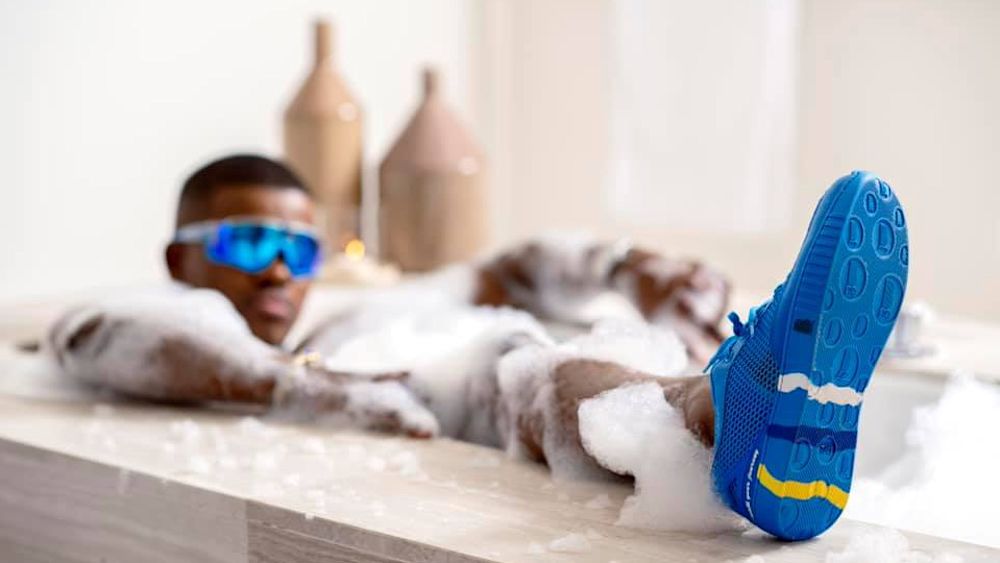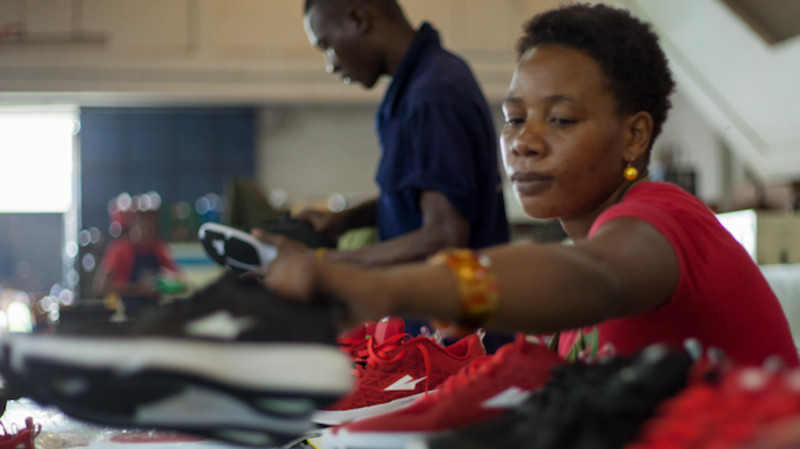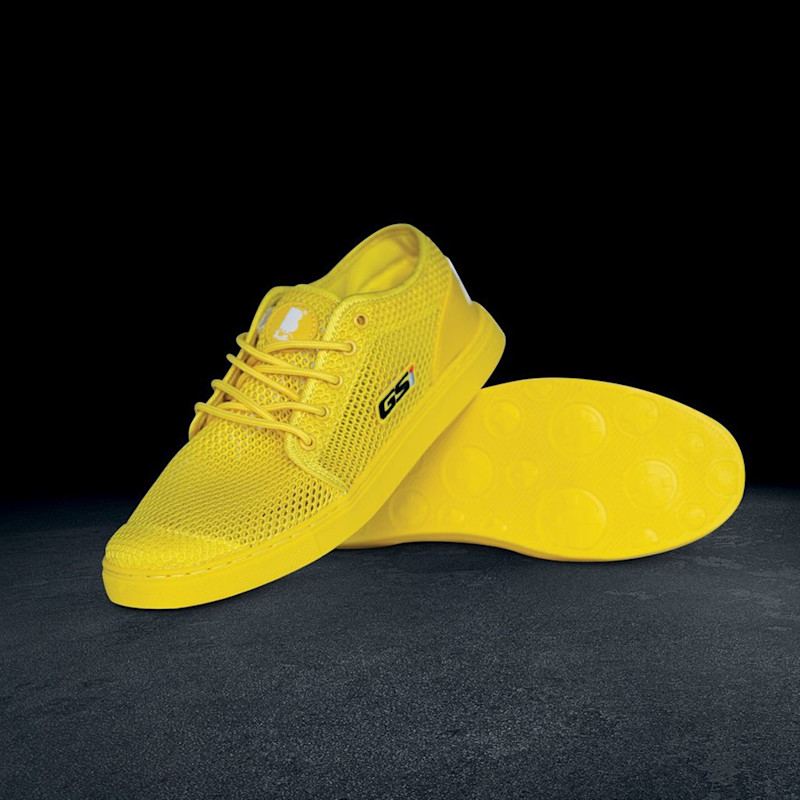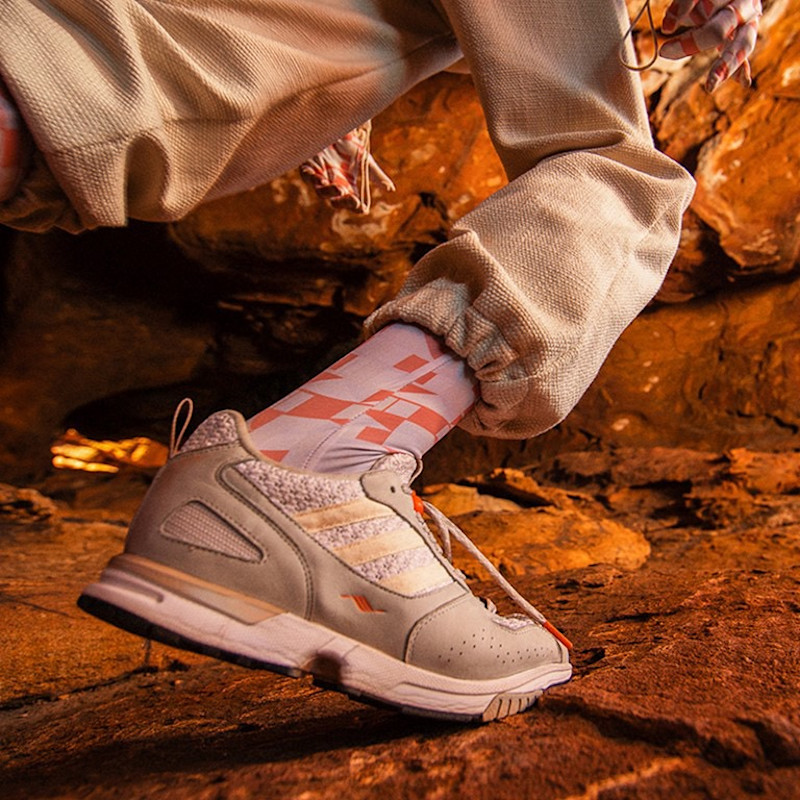- Iterate
- Meet The Team
- The Opportunities and Challenges of Building a Made in Africa Sneakers Brand
The Opportunities and Challenges of Building a Made in Africa Sneakers Brand
This market has presented huge opportunities for entrepreneurs in Africa to leverage, particularly in the sneakers value chain, due to the rise in streetwear culture and the hot climate driving consumer preferences towards casual wear. The footwear segment in South Africa alone is expected to reach by 2025.

We've seen quite the boom in sneakers taking market dominance within a global footwear apparel category that is forecasted to reach $95 billion USD by 2025. Pure play brands such as Nike, Puma, and Adidas remain dominant players in the category, while luxury brands like Louis Vuitton, Bottega Veneta, and Balenciaga have spent the last couple of years investing heavily in high end sneakers to serve as a credible bridge to reach younger target audiences, like Gen Z.
This market has presented huge opportunities for entrepreneurs in Africa to leverage, particularly in the sneakers value chain, due to the rise in streetwear culture and the hot climate driving consumer preferences towards casual wear. The footwear segment in South Africa alone is expected to reach $594 million USD by 2025. The Org assessed various market players on the continent who are charting profitable paths for themselves by making and selling footwear. We assessed a brand in Kenya making high performance athletic shoes, a fast-growing sneaker brand in South Africa, and also looked at an African brand taking advantage of the demand for sustainable footwear globally.
Kenyans are well known for producing world class marathon runners. In 2019, history was made when Eliud Kipchoge became the first man to run a marathon in under two hours. To leverage this culture of running and develop a product that would proudly fly the Kenyan flag, Navalayo Osembo and Waldon Kennedy co-founded Enda to make the first Kenyan-made running shoe and the first high performance athletic shoe in Africa. Their primary objective was to create jobs in manufacturing, given that the Kenyan government has made the apparel industry a high priority because of its potential to provide 100,000 new jobs by 2022.
Growing and scaling Enda has not been without its challenges, particularly when it comes to fundraising. Most of the local and international investors they approached had a preference for investing in the booming tech sector and real estate more so than in manufacturing. Shipping product to local markets remains a challenge as well due to the underdeveloped logistics infrastructure to support e-commerce that is quite prevalent on the continent. For example, Enda customers in Kenya would get their shoes eight weeks after ordering, while shipping them off to the U.S. would take a day.
Despite all this, the company sold 7,000 pairs of shoes in 2020, with most of the demand coming from the U.S. in light of the Black Lives Matter movement and consumers becoming increasingly conscious about supporting Black-owned businesses.

While the dedication of Osembo and Kennedy to create the first-ever line of running shoes made in Africa could see them in good stead going forward, sneaker manufacturers and resellers on the continent are the ones currrently achieving significant growth.
South African entrepreneur Theo Baloyi quit his job in 2015 as an accountant at PwC to pursue his new sneakers business, Bathu, using it to tell an untold township story to the rest of the world. Bathu's slogan, `Walk Your Journey,’ was conceptualized when he was living in a small room in Alexandra township in northern Johannesburg, doing research and development to make his dream come true. The brand has a cult-following amongst South Africans for its edgy designs that make people want to buy more than one pair, as the company releases new editions with fresh concepts.
Bathu uses social media as a successful channel to promote their brand, with close to 300k followers on Instagram, which enables local celebrities to serve as advocates. The business employs more than 100 people and has recorded over $1.5 million in revenue to date. They also collaborated with car manufacturer Opel to design R365,900, the most expensive sneaker ever made in South Africa. Only 80 pairs were made with a $24,000 price tag.

The culture of sneakerheads will continue to be a driving force behind the growth of the shoe category. There have been great opportunities in the reseller market through online marketplaces such as Court Order in South Africa that exist to match buyers and sellers who collect unique and limited edition sneakers.
The Org interviewed Nick Herbert, a Cape Town based entrepreneur and globally renowned graffiti artist who was among the pioneers of the sneaker culture in South Africa. He co-founded Shelflife more than 15 years ago, a streetwear brand and brick and mortar store that is also known as the sneakers shrine amongst its followers.
“When I moved to Canada from South Africa about 30 years ago, a whole new world opened up for me about the sneakers culture that was pretty much non-existent back at home,” Herbert said. “I started Shelflife in 2006, after spotting this gap in the market, but even then, I was selling to a niche group of collectors, as the sneaker culture in South Africa was primarily affiliated with skateboarding and surfing then.”
Herbert has since then collaborated with brands like Adidas and recently conceptualized the Adidas Shelflife ZX 4000, a model that reinvented an old style that was previously launched in 1989, making Shelflife the first brand globally to add their brand to this iconic style.
“There was a lot of back and forth in the conceptualization process," Herbert said. "The final product was sold in over 80 cities globally and is now sold out given that the shoes are a collector's item.”

The last factor for entrepreneurs on the continent to consider is the growing consumer demand towards more sustainable options in fashion, with brands like Stella McCartney and VEJA attaining considerable growth with a target audience that has a preference for brands that follow an ethical approach to sourcing and manufacturing their shoes. SoleRebels, founded by Bethlehem Tilahun Alemu in 2005, is amongst the top shoe manufacturing brand in Africa making a mark in that product category.
An eco-conscious brand based in Ethiopia, soleRebels makes shoes out of recycled materials and prides itself on paying three times more than the industry average to the shoemakers. The company has been certified by the World Trade Organization as fairtrade, now sells in more than 55 countries, and was listed as the first African consumer retail store to open branches globally.
One of the key attributing factors towards the success of these African brands is that they are all committed to developing their economies through providing meaningful employment. In a market dominated by big conglomerates, their prospects for doing really well in the future will lie in attaining the investment needed to get the visibility required in what is a lucrative, but increasingly crowded, market.
--
The Org is a professional community where transparent companies can show off their team to the world. Join your company here to add yourself to the org chart!
In this article


The ORG helps
you hire great
candidates
Free to use – try today